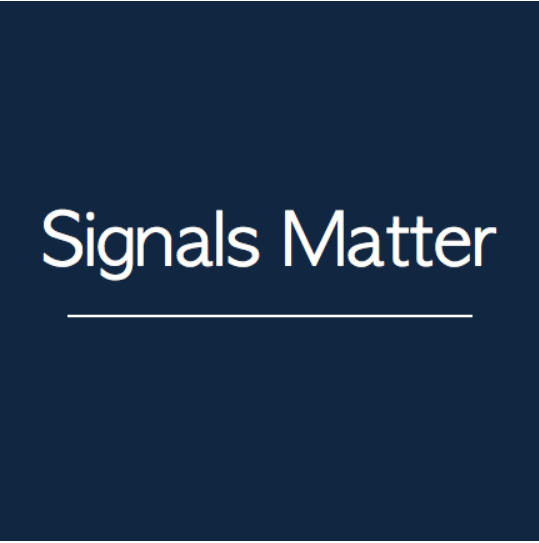Bond markets and bond risk are far more relevant today than worrying about politics, tax reform, the next Fed-Chair or even a rising stock market. Below, we explain why.
Tax reform is boring. Politics is nauseating. So I’ll try to keep this quick.
The fiscal wunderkinder in DC on both sides of the isle are working real hard between long vacations to come up with a deficit-financed tax reform bill and tax cut which currently amounts to about $1.5T.
As we’ll consider below, this “tax reform” measure (unfairly lauded as the next Reagan bump) will be the stimulative equivalent of adding a thimble of Redbull to a swimming pool (or swamp) of water. That is: it’s a big fat nothing.
So why do we care? Because Wall Street’s sky-rocketing markets have priced in a tax reform / economic miracle, yet what is coming out of DC politics is anything but miraculous. The better word is: ridiculous.
How do I know? Because I’ve spent way too many hours doing the math rather than listening to NPR, CNBC or Fox News. My head aches.
Breaking down bloated national balance sheets and spending proposals on the Hill is like reading a lawn-mower manual. Nor is it much fun second guessing the viability of a consensus vote on such riveting, yet unlikely tax reforms as 401K tweaks or business interest and state and local tax deduction .
Ugh.
But rather than make predictions on the voting habits of Graham, Corker, Flake, McCain on one side, or the Democratic Resistance on the other side, I’d rather just keep it simple/stupid and look at the lighthouse, not the fog of politics. And what is the light in this DC fog? What is the bottom line?
The bottom line is this: the US is in too much DEBT. We’ve long ago crossed a fiscal Rubicon that no tax reform, new Fed chair or President can un-cross. In short: we’re in deep fiscal dodo.
After eight years of accumulating $10T of additional debt and proposing a senate resolution that adds another $12T of debt under the adjusted CBO baseline for the next decade, a $1.5T tax cut is hardly going to make America great again…
Even for those who aren’t laughing at the Laffer curve (the notion that tax cuts lead to economic growth), it’s hard to see how a tax reconciliation bill which boils down to little more than a $1.5-1.6T legislative band-aide is going to move the American needle or justify this clearly crazy bull market.
By the way, when the Gipper cut taxes in 81, the US debt to GDP ratio was 30%, today it’s over 100%. Whether we like it or not, we’ve run out of excuses in America for believing in illusions or political promises, regardless of party, patriotism or pride. Let’s not kid ourselves: we’re broke.
Whatever face-saving plan or “tax reform” spun out of DC in the next three to four months will thus come down to optics, not substance. And believe me, there will be plenty of spin. (But if you look under the hood, no engine will be there…)
As we’ll see, the real problem now is not taxes, it’s debt—which means, the real thing to be watching is bond risk, not the media market…
Bonds are essentially glorified I-Owe-You’s. Companies, cities and countries issue them today the way crack-addicts beg for cash on street corners, that is: desperately.
As I’ve written elsewhere, the US, which is addicted to debt rather than productivity, is begging for our cash by issuing US treasuries, which, when adjusted for real rather than fictional, CPI inflation, actually give you a negative return for your positive faith.
It’s pretty sad, really.
Credit market “credibility” is the open lie in a security market riddled with risks, and the bond market is the riskiest market of all.
That’s saying something. Especially when one considers: 1) a stock market wave over-valued in 18 of 20 historical metrics; 2) that even cheerleading banks like Goldman are warning of historical overvaluation; 3) equities that are saturated with post-08, mis-matched ETF inflows of >$3T; 4) a $75B+ annual VC bubble in Silicon Valley; 5) robo-trading machines (from hedge funds to pension funds) that buy every dip for now yet soon to become selling cyborgs when this market breaks for any number of possible reasons/triggers—from China to the Chicago Board of Trade.
So why, in this backdrop of stock market crazy, am I, and others, even more worried about bond risk?
As my four-part history of the markets made clear, debt is the new normal, and debt is out of control. Given that bonds are the belle-weather of the debt markets, it stands to reason that bonds have us nervous, very nervous.
That’s why we watch bond risk so carefully as part of our proprietary Signals Matter Iceberg Watch.
I’ve written ad nausea about the Fed’s complete and total distortion of bond pricing and debt expansion. I’ve written as well about our national balance sheet, bond yield compression and unsustainable momentum without central bank support.
When actual demand, rather than artificial (i.e. central bank) demand returns to a bond market near you, prices are going to dive and yields—as well as interest rates—are going to rise.
Meanwhile, the Fed has somehow convinced itself and the investing world that 12 super-heroes (who are in fact, really just mortals) at the FOMC have more control of markets, employment, rates, inflation and prosperity than the productivity, caprice, strength, weakness and work flows of millions of citizens, traders and tricksters.
The idea that a $20T economy can be turned up and down like a Fed thermostat by pegging short-term rates to zero or printing money out of thin air makes as much long-term sense as believing Superman can save us from another Category 5 hurricane.
That is why I’m largely indifferent as to who becomes the next Fed chair. Whatever “rate policy” they favor—hawk or dove (and it will be a dove)—is like worrying about whether you want steak or salmon on the A-Deck of the Titanic. In short, it really doesn’t matter.
What matters is that debt iceberg looming just 20 feet off the bow of our soon to be sinking bond (and hence over-all) market and economy…
I remember a bond market when junk bonds were the play things of a few ethically challenged headliners. Today, the junk market has fattened to over $3T in the US and over $5T globally. It’s the ticking time bomb indicator of a credit market gone mad.
How did this happen? Well… when central bank “super heroes” rather than human beings buy bonds, the prices soar and the yields (returns) shrink.
Folks who still believe bonds are the “safe allocation” and portfolio diversifiers of yesterday, are then forced to go further and further on the risk branch to get a tiny taste of “yield.” This kind of risk-taking in the face of bond risk reality (masked by years of media-spun “exuberance”) is a script we’ve seen over and over before a massive correction.
And a correction is coming.
When?
Ah hah. Good question.
No one, not us, not Jim Rogers, Seth Klarman, Howard Marks, Kyle Bass or the broker down the street—or even the televised gloom-and doomers (and certainly not the Ken and Barbie MSFM) are going to give you an exact date.
But what we are doing at Signals Matter is close enough. Because we’re watching signals, not just macros, and making money long and short on trade filters not media filters, we are able to come as close as possible to knowing when the rain is coming and when an umbrella is needed.
The storm clouds today are gathering. Rational or irrational, these markets can be traded—but they must be traded with an eye on risk management not illusion, reason, not bull or bear bias. To do otherwise is to gamble. Here at Signals Matter, we prefer managing risk, not uncertainty, and investing over gambling.
You?
Be careful out there.



Critically important to understand this perspective when investing.
This is absolutely an essential read. No one is looking at the embedded dangers in the credit markets enough. Thanks for this post.